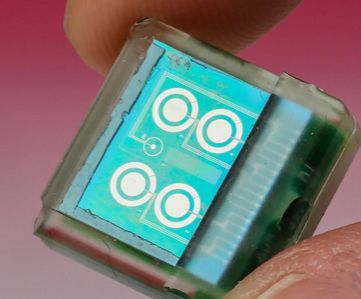A tiny (one-centimeter-square) biosensor chip developed at EPFL is designed to be implanted under your skin to continuously monitor concentrations of pH, temperature, and metabolism-related molecules like glucose, lactate and cholesterol, as well as some drugs.
The chip would replace blood work, which may take hours — or even days — for analysis and is a limited snapshot of conditions at the moment the blood is drawn.
Read more
